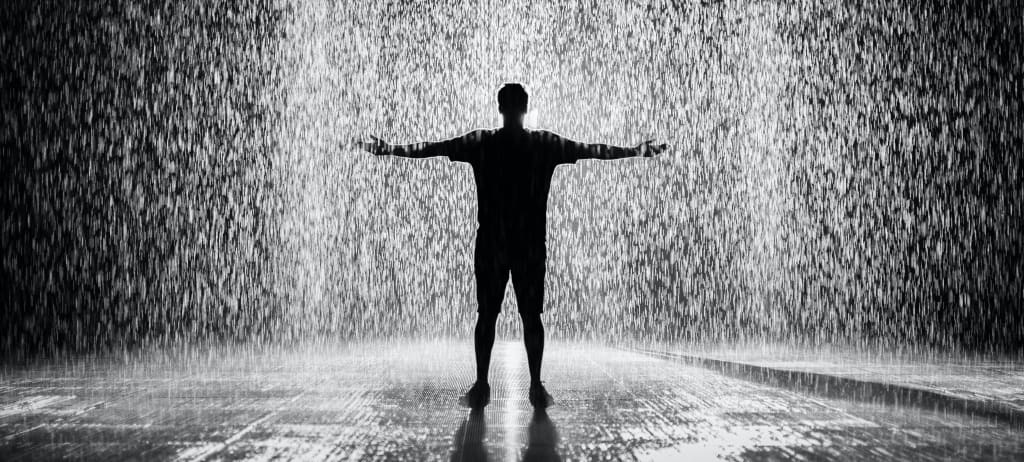A Wet World Run on Cow Dung
Review on Articles About False Eco Friendly Waste

From reading the articles “As a warming climate delivers more rain…” (Sellers, 2020) and “As the Livestock Industry Touts Manure-to-Energy Projects…” (Gustin, 2020) I found a great deal of information given about industry and municipalities when it comes to how they are managing their waste. The articles give an insight into how they approach initiatives to attempt to make their production of waste appear to be more echo-friendly. The pork industry for example is working with public utility companies to create bio-gas which sounds like a good alternative to all the undesirable pollution but is proven it is not. The city of Philadelphia is working closely with the EPA to try and find ways to reduce the contamination they create using technological initiatives and this seems to be more promising. Through these readings I have learned that industry has found ways to keep up appearances of being green in some instances while entire cities are taking initiatives to actually tackle the problem. Climate change is a legitimate issue we all have to face and industry can not be allowed to continue to ignore it.
In the case of the pork manufacturing industry the article written by Gustin explains that the manufacturing giants and public utility companies have decided they will turn the hog manure into biogas. Initially this idea was thought to be mutually beneficial to the environment and the companies producing the gas. Unfortunately, after analyzing the process more thoroughly that simply is not the case and it turns out there are unfavorable consequences that will harm the planet. The system required to process the manure into gas would continue to pollute “waterways and quality of air” (Gustin). Additionally, even though the biogas could reduce the emission of carbon dioxide, there would still be the issues of the quantity of animals raised which is a source of methane. Even the setup of the biogas system would be detrimental. It was proven that by doing so it would produce more ammonia, which is a more detrimental gas for the environment (Gustin). This makes the concept faulty and it provides no additional benefit for the environment despite what the general public thinks.
In the article written by Sellers a different story is told. Although the initial information is very alarming with regards to the pollution in most cities and how they have continually contributed to the contamination of sewers and waterways. Most cities have sewers that feed into their waterways. By doing so the cities are self-inflicting problems that they have to resolve themselves (Sellers, np.). Issues like waterborne diseases, land pollution and water pollution are all suspected to be created by these polluted and clogged sewer systems. There does seem to be hope however; the city of Philadelphia and the EPA are taking a good step forward (Sellers, np.) by partnering together and adopting new technological approaches to help solve these environmental issues and in time we will see if they are able to undo the damage that has been caused.
In order for society to overcome these issues that are mentioned in both articles we need to stop sitting idle and start taking action. The first thing the general public requires is education and understanding as to what problems are being faced and to question corporations when they are offering initiatives that appear to be environmentally friendly. Industry should be held accountable and called on their dishonesty when they attempt to greenwash the public. The public also needs to come to an understanding that individual actions add up and can make a difference. The use of toilet paper and flushing objects like tampons and condoms down toilets are major contributors to the pollution and clogging of the sewer systems in cities. Although sewage treatment plants are a key instrument in reducing the pollution, so are the actions of the public. We need to take individual accountability for what is happening to the environment and make suitable lifestyle changes to slow climate change as best as we can.
The articles “As a warming climate delivers more rain…” (Sellers, 2020) and “As the Livestock Industry Touts Manure-to-Energy Projects…” (Gustin, 2020) offer information on industry and municipalities managing their waste. They offer insight into how initiatives to make waste more echo-friendly may or may not be what they seem. I learned a lot from these articles with regards to how industry has found ways to only appear that they are making efforts at being green and how cities have contaminated their own local environments leaving them to have to deal with the issues in their own municipalities. I believe that the best course of action to at least slow climate change and reduce pollution is public education and accountability. The public should understand and question green initiatives put forward by corporations and even the government while at the same time take accountability for actions of themselves as individuals. It is only by making these changes and altering how we live that the Earth will remain habitable.
Sources
Gustin, G. “As the Livestock Industry Touts Manure-to-Energy Projects, Environmentalists Cry 'Greenwashing'; Corporate pork and dairy producers are producing ‘biogas’ to reduce methane emissions. But the actual climate benefits are unclear, and often overstated”. Inside Climate News, 2020.
Sellers, Frances Stead. "As a warming climate delivers more rain, overwhelming sewers and polluting waterways, one city is trying a green solution."
Washingtonpost.com, 9 Apr. 2020, p. NA. Gale in Context: Opposing Viewpoints,
link.gale.com/apps/doc/A619991718/OVIC?u=lincclin_mdcc&sid=bookmark-OVIC&xid=3d6a280c.
Cover Photo
Pasaric, A. (2018, October 25). Silhouette and grayscale photography of man standing under the rain · Free Stock photo. Pexels. https://www.pexels.com/photo/silhouette-and-grayscale-photography-of-man-standing-under-the-rain-1530423/
About the Creator
Enjoyed the story? Support the Creator.
Subscribe for free to receive all their stories in your feed. You could also pledge your support or give them a one-off tip, letting them know you appreciate their work.






Comments
There are no comments for this story
Be the first to respond and start the conversation.